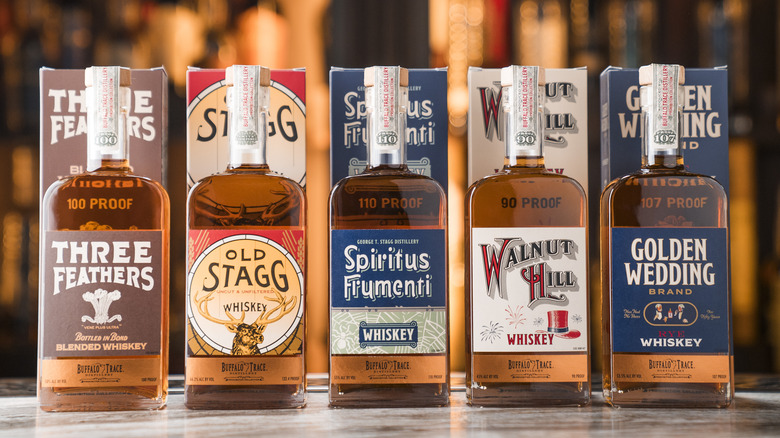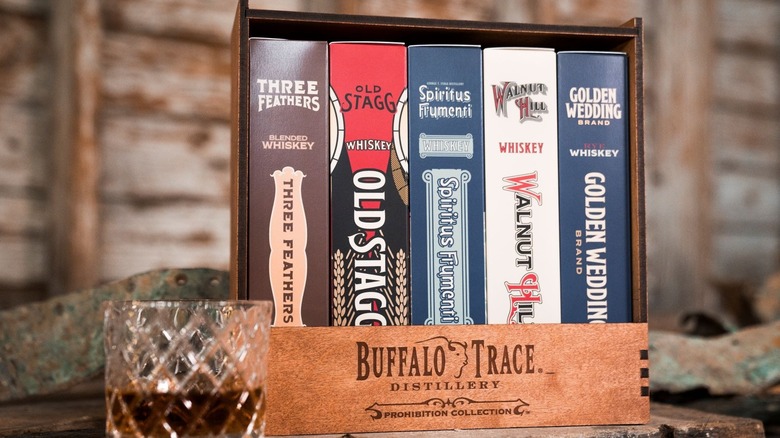Buffalo Trace Releases Limited-Edition Series Of Prohibition-Era Whiskeys
Prohibition may not seem like the kind of history a distillery would look back on fondly, but Buffalo Trace still embraces one of the toughest periods for sales of American liquor with a new line of Prohibition-era-inspired whiskeys. The 18th Amendment, colloquially known as prohibition, was enacted in 1920 and effectively banned the sale of alcohol in the U.S. While it was devastating to a number of American businesses, from breweries to vineyards, Buffalo Trace was one of the few manufacturers that was permitted to stay in operation because of the medical exception that allowed a handful of distilleries to legally produce medicinal alcohols and spirits. This history is what Buffalo Trace is celebrating as it releases five new limited-edition whiskeys, with each bottle based on a bygone brand produced by the distillery during the period.
The five brands being resurrected by Buffalo Trace are Old Stagg, Golden Wedding, Three Feathers, Walnut Hill, and the delightfully named George T. Stagg Distillery Spiritus Frumenti. Buffalo Trace master distiller Harlen Wheatley said in a press release that the company's motto is "Honor Tradition, Embrace Change," and that while each of these limited-edition brands was eventually discontinued after Prohibition, "they were integral to our survival. Without them, today there would be no Buffalo Trace." The collection will be available in limited quantities across the country and will start being sold in October, with a suggested retail price of $999.99 for the full set of five 375ml bottles.
Buffalo Trace's five new Prohibition-era whiskeys draw from the distilleries storied history
The limited-edition whiskeys showcase a wide swath of Buffalo Trace's history, even beyond its connection to Prohibition. Old Stagg — referring to former Buffalo Trace owner George T. Stagg — was once the company's flagship product. It's the stiffest drink of the batch at 66.2% ABV and is an oaky and mellow barrel-proof whiskey that is neither cut nor filtered. Golden Wedding, on the other hand, is a heavy, grainy rye whiskey that was originally produced by another distillery in Pennsylvania in 1869 before sharing production with Buffalo Trace in the '20s and disappearing later in the century. Three Feathers is a 100-proof, bottled-in-bond whiskey that predates Prohibition by nearly a hundred years to 1812. Walnut Hill is a high-rye bourbon from the heart of the Prohibition era, and it features a complex blend of citrus notes, corn, and oak flavors, with top notes of sweet molasses, vanilla, and smoke. Finally, the Spiritus Frumenti bottle is a wheated bourbon based on the medicinal "spirit of the grain," whiskeys known to have fruity, floral tastes with cherry and oak notes.
Even the packaging is inspired by the distillery's rich history, with all five bottles having 1920s-inspired labels and back cartons that feature cut-outs of doctors' prescriptions for medicinal whiskey. The whole collection is housed in a custom-made wooden display case as well. While the whiskeys themselves are surely impressive, this is a real treat for lovers of snifters and American antiquity.

